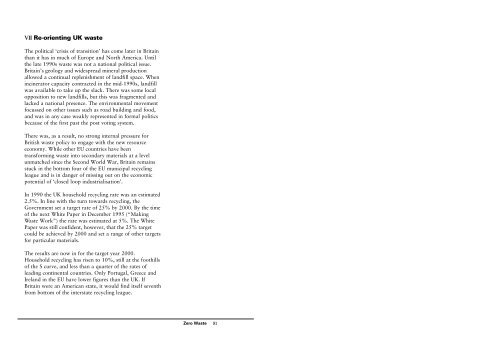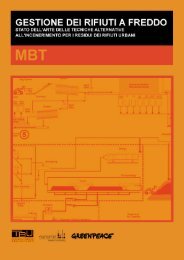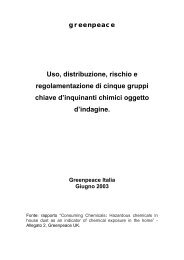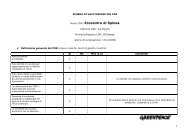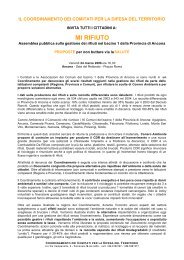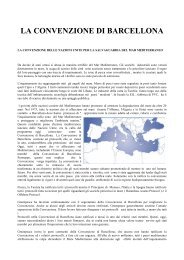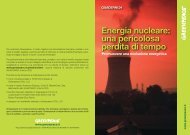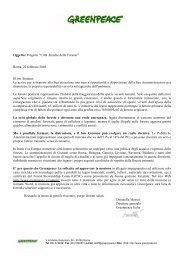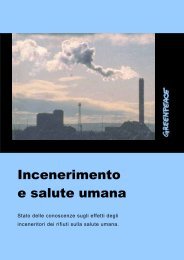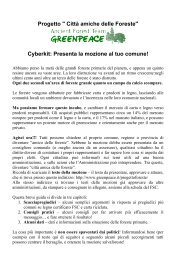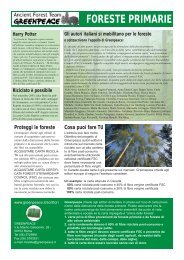Zero Waste by Robin Murray, Greenpeace Environmental Trust 2002
Zero Waste by Robin Murray, Greenpeace Environmental Trust 2002
Zero Waste by Robin Murray, Greenpeace Environmental Trust 2002
Create successful ePaper yourself
Turn your PDF publications into a flip-book with our unique Google optimized e-Paper software.
V I I Re-orienting UK waste<br />
The political ‘crisis of transition’ has come later in Britain<br />
than it has in much of Europe and North America. Until<br />
the late 1990s waste was not a national political issue.<br />
Britain’s geology and widespread mineral production<br />
allowed a continual replenishment of landfill space. When<br />
incinerator capacity contracted in the mid-1990s, landfill<br />
was available to take up the slack. There was some local<br />
opposition to new landfills, but this was fragmented and<br />
lacked a national presence. The environmental movement<br />
focussed on other issues such as road building and food,<br />
and was in any case weakly represented in formal politics<br />
because of the first past the post voting system.<br />
There was, as a result, no strong internal pressure for<br />
British waste policy to engage with the new resource<br />
economy. While other EU countries have been<br />
transforming waste into secondary materials at a level<br />
unmatched since the Second World War, Britain remains<br />
stuck in the bottom four of the EU municipal recycling<br />
league and is in danger of missing out on the economic<br />
potential of ‘closed loop industrialisation’.<br />
In 1990 the UK household recycling rate was an estimated<br />
2.5%. In line with the turn towards recycling, the<br />
Government set a target rate of 25% <strong>by</strong> 2000. By the time<br />
of the next White Paper in December 1995 (“Making<br />
<strong>Waste</strong> Work”) the rate was estimated at 5%. The White<br />
Paper was still confident, however, that the 25% target<br />
could be achieved <strong>by</strong> 2000 and set a range of other targets<br />
for particular materials.<br />
The results are now in for the target year 2000.<br />
Household recycling has risen to 10%, still at the foothills<br />
of the S curve, and less than a quarter of the rates of<br />
leading continental countries. Only Portugal, Greece and<br />
Ireland in the EU have lower figures than the UK. If<br />
Britain were an American state, it would find itself seventh<br />
from bottom of the interstate recycling league.<br />
<strong>Zero</strong> <strong>Waste</strong><br />
91


